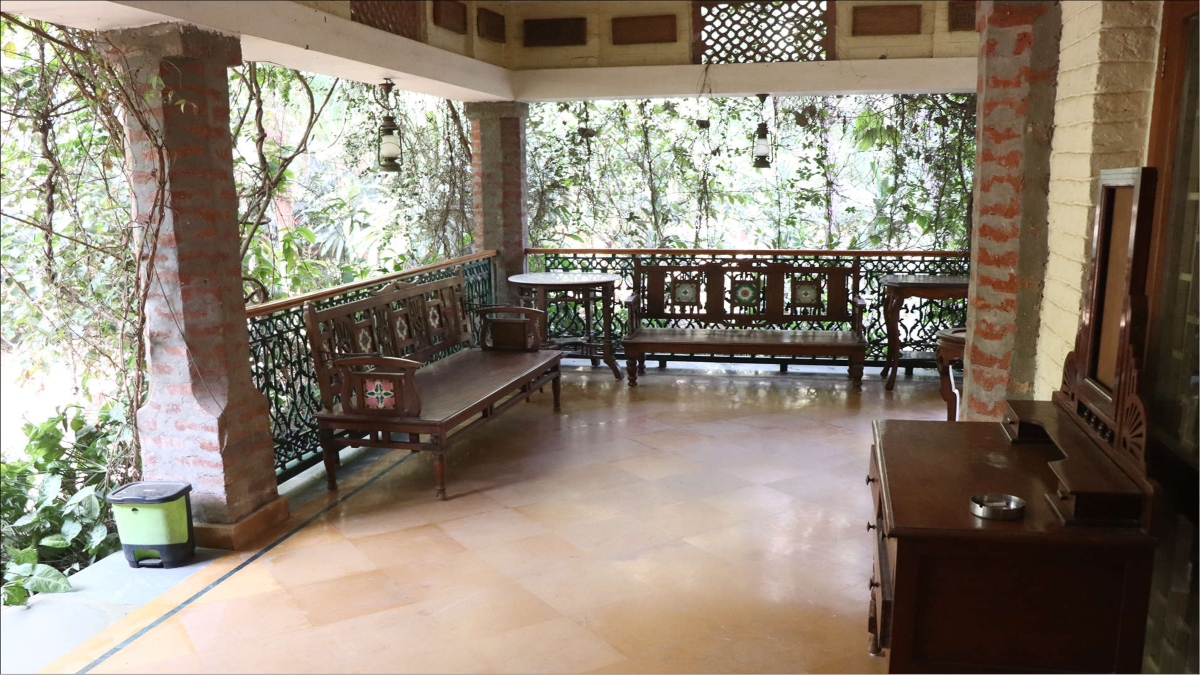


Under a majestic hillock of the Aravalli range, in the verdant village of Tikli came alive a forum that is much needed in this fast degenerating world where all that is worth conserving is slowly eroding away. Titled The Forum for the Natural & Cultural Heritage of India, it was formally launched at Dilkushan Bagh, a sumptuous estate on the edge of the jungle in the presence of its chief patron Raja Randhir Singh of Patiala, Chairman Asian Olympic Association.






A not for profit forum founded by the gentle soldier Kumar Karun Kant, born and brought up in Patiala and a strong part of the city’s royal lineage, it hopes to become a quiet catalyst of change. “I wanted to offer the city of Djinns, Delhi and its people a place where they could relive history in all its splendor. Record the words, thoughts and voice of modern day heroes, have historians and art aficionados share valuable nuggets from the past. Where animal lovers and eco warriors could discuss issues related to the environment. All this while they enjoyed the best cuisine refined living can offer within our home where melodious voices could resonate in total harmony with the world around.”
Kumar, as he is known to the cultural milieu of Punjab, came to Delhi to practice his profession as an arbitrator. His father, a noble, insisted that he could leave the city of Patiala but not his home. Hence the son simply uprooted his home in Punjab and brought its lock, stock, and barrel to New Delhi, deciding to live within the village of Tikli, which is one of the few pristine leopard sanctuaries still remaining on the fringe of India’s capital. He shares, “I transported every carved wooden door, every arch ,each and every piece of furniture that was made by my family many generations ago, restoring it and placing it inside the estate. Even the architecture of the home was a carbon copy.” Spread over 16 acres with most of it still left a pristine forest, Dilkushan Bagh quietly emerged as a heaven for filming and photography. The idea to turn it into a heritage space came from Randhir Singhborn into the Patiala family that is known for its love for music, its pledge to heritage.
“Few years ago, Raja Sahib, standing in this very garden expressed a need to create a forum for Music and Nature lovers. No one knows more than him that in India, nature, forests, music, sensuality, food, spirituality all blend as a singular instinct for life. Today marks the beginning of that journey.” Kumar also invited his childhood hero, the globally acclaimed conservationist, Maharaj Kumar Dr Ranjitsinh Jee, Wankaner on the advisory board, along with Pushpesh Pant to advise on conservation fo cuisine cultures. He feels the space is now ready for experts to call their own and use it as a conservatory for refined research. “India is rich with brilliant souls whom I want to invite to my home to research, record, share and archive Indian Natural and Cultural Heritage. Culture is what we carry in our souls. It cannot be defined by otherness or isms but by what is eternal and or instinctive within us. These elders are great storytellers because they have lived great lives and because they cared. I hope we are able to inform and inspire the coming generations.”
For the launch Kumar hosted a classical music session by Jawad Ali Khan Sahib celebrating the rich legacy of the Patiala Gharana as Ustaad Sajan Mishra, his son Saransh Mishra of Benaras Gharana and famous Punjabi singer, Jasbir Jassi sang impromptu to an enthralled audience. This was followed by a fashion show by Saurabh—Rajeshweri from The House Of Patiala. On this occasion, Raja Randhir Singh released a song sung by Vusat Iqbal Khan in memory of her father, the Late Ustaad Iqbal Ahmed Khan Sahib, the khalifa of the Delhi.